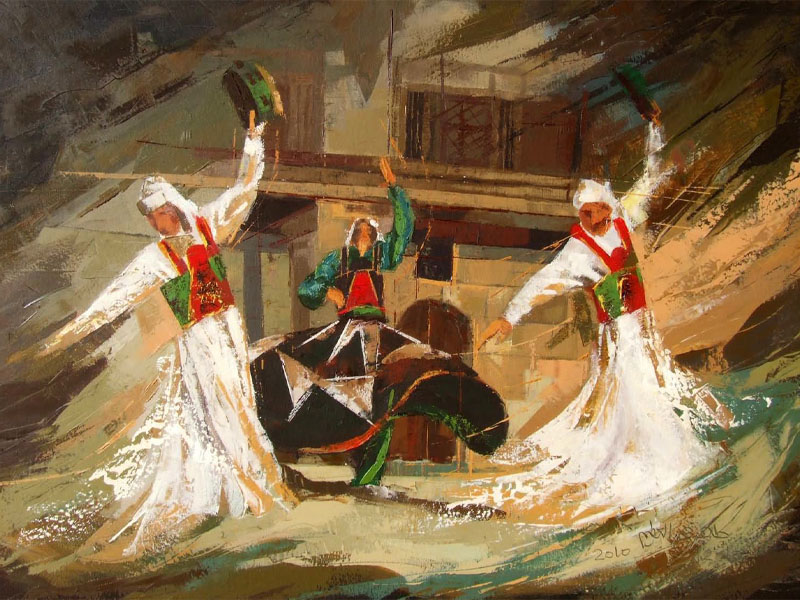Hadra and the Judiah Khalwatiah Sufis: The example of Nazlit Al Masharqa village
Issue 31

Mahmud Abdullah Al Tuhami
Egypt
Attributed to Sheikh Mohammed Khalwati, Judiah Khalwatiah was introduced to Egypt by Sheikh Mustafa Kamal al-Din al-Bakri. It now has many branches within and outside Egypt. Sheikh Amin Abdullah said that Judiah is a branch of Khuwatiah. It is attributed to Sheikh Judah Abdul Mit’aal, who is connected in the chain of transmission (Sanad) to many renowned scholars including Sheikh al-Bakri, who introduced this branch of Sufism to Egypt; Sheikh Umar Suhrawardi; the Sheikh of Khalwatiah Abu al-Qasim Junaid; Al Sari Al Saqati; Ma’ruf Al Karkhi; Dawud Al Ta’i; and Hasan al-Basri.

A small agricultural village, Nazlit Al Masharqa became a centre for this branch of Sufism. The village lies to the west of Bani Suif province, Egypt. At the beginning of 2013, it was home to 5,258 people. The now-urbanised village has schools, mosques, a healthcare centre and a sports centre. Many of the inhabitants work in other Arab countries, in the public sector or on small projects, but the village has a high rate of unemployment.
The aim of this paper is to present a field study of Judiah Khalwatiah Sufism in order to improve the understanding of its practices and rituals. The paper attempted to address the following challenges that scholars may face:
1. According to Sufi regulations,followers are not supposed to talk about their meditations or insider knowledge.
2.Many of today’s followers do not abide by the original regulations, so they are not the best representatives.
3.Many of the grand sheikhs have passed away, and there are fewer new followers.
4.In order to understand the practices, you need to be a follower.
In Arabic, Hadra means ”presence“, and in Sufism, this is a state characterised by reverence, celibacy, remembrance, recitations of the Holy Quran, songs praising the Prophet, and invocations with particular movements. Hadra may also refer to followers gathering in one place, or a belief in invoking the souls of saints.


































































